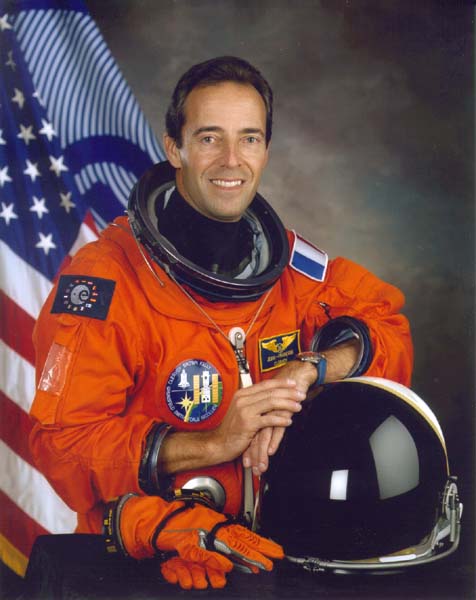The secret to becoming an astronaut is that you have to really, really, really want to be one.

Oh yes – and to be considered for the European Space Agency’s 2008 recruitment round currently in progress (they recruit only every 15 years or so) you also need to be the right age and nationality.
So we were told tonight by French astronaut Jean-Francois Clervoys at the London Science Museum’s Dana Centre. Three time shuttle astronaut Clervoys, with 675 space-hours under his belt, joined a panel of experts in space history, medicine, and psychology to educate and entertain the forty or so of us volunteering for ‘Space Station Dana’.
But it wasn’t all one way. Split into teams, and clutching our Astronaut Training and Selection Manuals, we set off on a range of psychological, physical, and knowledge tests that were fun – and sufficiently taxing – to get a flavour of what 21st century ‘Right Stuff’ is all about.

One of the exercises involved an imaginary manned trip to Mars. It takes 20 minutes for communications to travel from Earth to Mars, so any issues with the spacecraft once it’s a good distance from Earth will need sorting without the help of real time chit-chat with engineers back home. So our psychological test was based on that scenario, the idea being to get things right first time through good planning and authority, all the time maintaining good relations and respect in the team (they used a Post-it/paper-clip tower building exercise, conducted in total silence after an initial planning session).
Contrary to popular belief, Clervoys said, you don’t have to have super-human qualities to be an astronaut. So what are the qualifications? Well, you’ll typically be 27 to 37 years of age – more so your sponsors get a sensible return-on-investment in working years than some set-in-stone physiological reason. It also helps if you have a PhD in a relevant discipline and can speak Russian. Then there’s the raft of psychological tests – which are pretty tough. You will need to be physically fit; but again, that’s more about not dropping out of the programme and your career through ill health than an ability to withstand physical extremes.
If you get selected after all that, it’s 18 month basic training in Europe, the USA, and Russia; and you’re on your way to the dream!
And in winding up the evening, a dream is exactly how Jean-Francois relived his adventure for us, describing the effect of dimming the shuttle’s cabin lights with the sun and earth behind the spacecraft, and looking at the “milky way like a highway” in the total blackness of space.
Good luck!